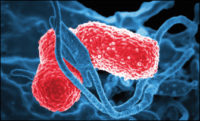Continued from Part 1: 5 Surprising Signs of an Unhealthy Heart
- Dizziness, Faintness, or Shortness of Breath
More than 40 percent of women in one study published in Circulation: Journal of the American Heart Association, reported having experienced shortness of breath in the days before a heart attack. You might feel like you can’t breathe, or you might feel dizzy or faint, as you would at high altitude. If you can’t catch your breath while walking upstairs, vacuuming, weeding the garden, or doing other activities that previously caused you no trouble, this is a reason to be on the alert.
Why it happens:
Not enough blood is getting through the arteries to carry sufficient oxygen to the heart. The heart muscle pain of angina may also make it hurt to draw a deep breath. Coronary artery disease (CAD), in which plaque builds up and blocks the arteries that feed the heart, prevents the heart from getting enough oxygen. The sudden sensation of not being able to take a deep breath is often the first sign of angina, a type of heart muscle pain.
What distinguishes it:
If shortness of breath is caused by lung disease, it usually comes on gradually as lung tissue is damaged by smoking or environmental factors. If heart or cardiovascular disease is the cause, the shortness of breath may come on much more suddenly with exertion and will go away when you rest.
- Indigestion, Nausea, or Heartburn
Although most of us expect pain from any condition related to the heart to occur in the chest, it may actually occur in the abdomen instead. Some people, particularly women, experience the pain as heartburn or a sensation of over-fullness and choking. A bout of severe indigestion and nausea can be an early sign of heart attack, or myocardial infarction, particularly in women.
In one study, women were more than twice as likely as men to experience vomiting, nausea, and indigestion for several months leading up to a heart attack.
Why it happens:
Blockages of fatty deposits in an artery can reduce or cut off the blood supply to the heart, causing what feels like tightness, squeezing, or pain – most typically in the chest but sometimes in the abdomen instead. Depending on which part of your heart is affected, it sends pain signals lower into the body. Nausea and light-headedness can also be signs that a heart attack is in progress, so call your doctor right away if the feeling persists.
What distinguishes it:
Like all types of angina, the abdominal pain associated with a heart problem is likely to worsen with exertion and get better with rest. Also, you’re likely to experience repeated episodes, rather than one prolonged episode as you would with normal indigestion or food poisoning.
- Jaw and Ear Pain
Ongoing jaw pain is one of those mysterious and nagging symptoms that can have several causes but can sometimes be a clue to coronary artery disease (CAD) and impending heart attack.
The pain may travel along the jaw all the way to the ear, and it can be hard to determine which it’s coming from, says cardiovascular nurse Margie Latrella. This is a symptom doctors have only recently begun to focus on, because many patients surveyed post-heart attack report that this is one of the only symptoms they noticed in the days and weeks leading up to the attack.
Why it happens:
Damaged heart tissue sends pain signals up and down the spinal cord to junctures with nerves that radiate from the cervical vertebrae out along the jaw and up to the ear.
What distinguishes it:
Unlike the jaw pain caused by temporomandibular joint disorder (TMJ), tooth pain, or ear infection, the pain doesn’t feel like it’s in one isolated spot but rather like it’s radiating outward in a line. The pain may extend down to the shoulder and arm – particularly on the left side, and treatments such as massage, ice, and heat don’t affect it.
Source: Caring.com


